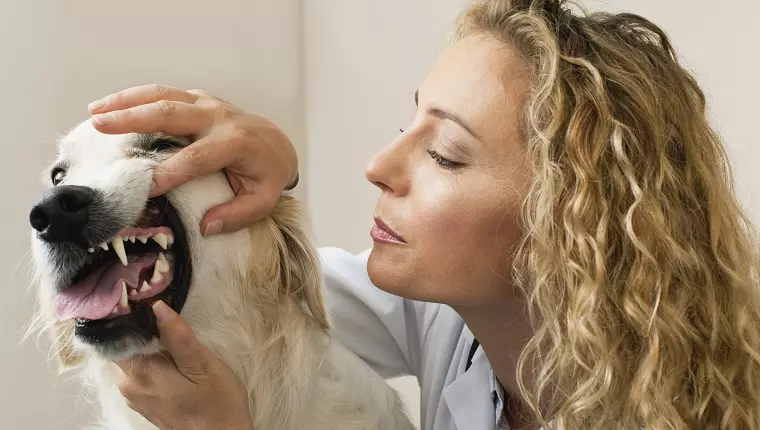February marks a significant time for pet owners, as it is recognized as National Pet Dental Health Month. While it could be tempting to brush this notion aside, the reality is that maintaining your dog’s oral health is paramount and can dramatically influence their overall well-being. Research indicates that about 80% of adult dogs experience some form of oral disease, making it imperative for pet parents to engage actively in preventive dental care.
Many pet owners may not realize it, but a dog’s mouth serves as an ideal environment for bacteria to flourish. The natural warmth and moisture, combined with organic debris, contribute to this phenomenon. Though some bacteria are harmless, neglecting routine dental care can lead to an overgrowth of harmful pathogens. This not only results in bad breath but can also spiral into severe health challenges, affecting vital organs such as the heart, liver, and kidneys. Toxins stemming from periodontal diseases can find their way into the bloodstream, causing systemic infections that compromise your dog’s health.
It’s easy for pet parents to overlook these dangers until it is too late. A visit to the veterinarian may reveal alarming conditions such as loose teeth, inflamed gums, or severe tartar buildup. These issues not only cause suffering but can also diminish the quality of life for your furry friend. Adhering to regular veterinary visits is essential, but home dental care is equally critical in ensuring your dog’s mouth remains healthy.
Establishing a dental care regimen for your dog should begin as early as possible. The sooner you introduce your pet to dental hygiene, the easier it will be for them to adapt to the process. Veterinary professionals are generally supportive in terms of guidance and may even provide brushing demonstrations, alongside suitable tools, such as soft-bristled brushes and dog-specific toothpaste.
It’s crucial to use toothpaste formulated for dogs, as human toothpaste can be harmful if ingested. Canine toothpaste is enzymatic and designed for safe swallowing, often coming in flavors that appeal to dogs, such as chicken or beef. Begin the process gently, allowing your dog to sniff and taste the toothpaste before progressing to the actual brushing. Always be cautious and build trust; a hurried approach may lead to anxiety or aggression.
Brushing isn’t the only avenue for maintaining your dog’s oral hygiene. Dental chew toys, like durable Kong products, serve as an effective means of mechanical cleaning while providing entertainment. These items not only help reduce plaque and tartar accumulation but also support your dog’s mental stimulation.
Another option includes dental treats designed specifically for tartar control. However, it’s important to keep an eye on your dog’s caloric intake, as treats can contribute to weight gain and other health issues if given in excess. Moreover, many commercial dog foods are enriched with ingredients that promote oral health, making them a viable option worth considering in consultation with your veterinarian.
Diet plays an integral role in oral health. Providing a balanced diet that is rich in meat can support a healthier mouth environment. If you’re inclined to make homemade dog food, ensure that it’s formulated to include the necessary nutrients that benefit oral hygiene. Additionally, combining high-quality dog food with treats that require chewing can create a dynamic approach to your pet’s dental care.
Veterinarians can offer valuable insight regarding your dog’s dietary needs, so take advantage of their expertise before making significant adjustments. Nourishing your dog with the proper diet, coupled with routine dental care, can greatly enhance their overall health and potentially prolong their lifespan.
Taking an active role in your dog’s dental health can lead to a life marked by vitality. Studies have suggested that dogs with regular dental care tend to live longer, happier lives. This correlation highlights the importance of preventative measures in fostering a healthier future for your dog.
Prioritizing dental health should become an integral part of any responsible pet owner’s roadmap. By adopting a routine that comprises professional cleanings, daily brushing, appropriate diet, and dental toys, you create a comprehensive strategy that not only protects your dog’s teeth but also enhances their quality of life. As you celebrate National Pet Dental Health Month, consider committing to a more proactive approach to your dog’s oral health, and share these insights with fellow dog lovers who may benefit from your newfound knowledge.

